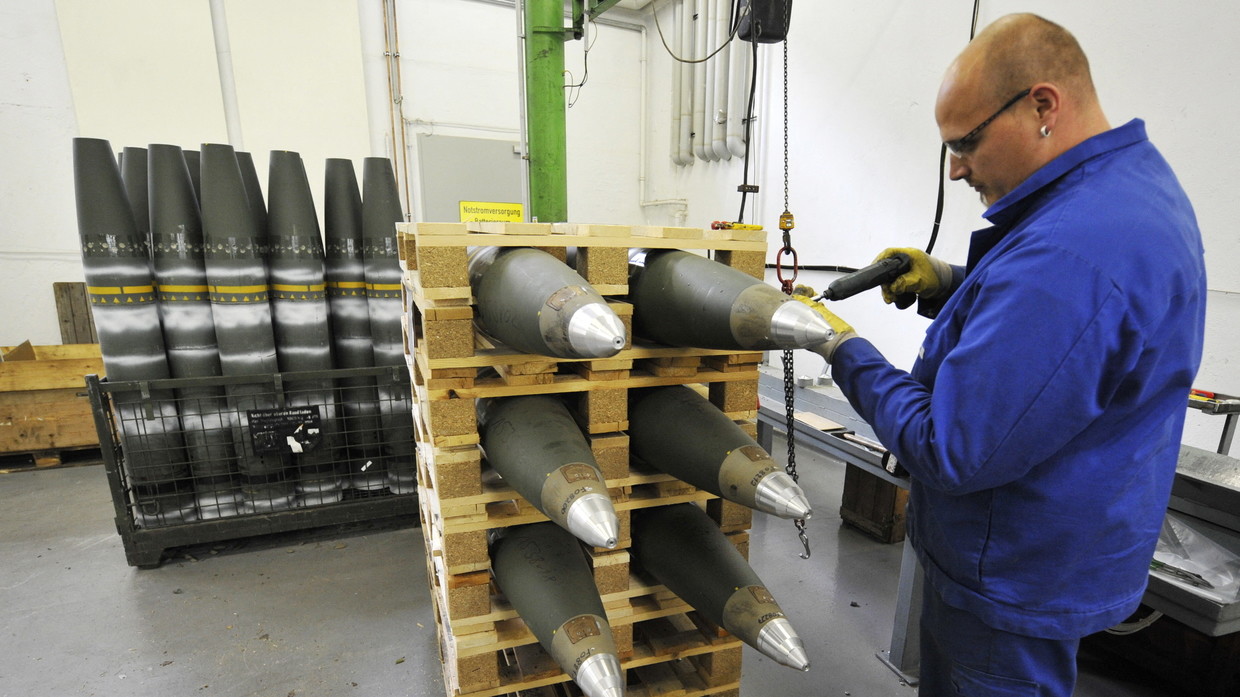Germany is reportedly storing US cluster munitions on its territory and shipping them on to Ukraine, according to public broadcaster NDR. The alleged arrangement could potentially put Berlin in violation of the 2008 UN Convention on Cluster Munitions, which bans these weapons due to their extreme danger to civilians. Despite denying any knowledge of the situation, Germany may be facing scrutiny for its role in facilitating the transport of these munitions.
Cluster munitions are notorious for causing widespread civilian harm, as they scatter small bomblets that can remain unexploded after the initial blast, effectively becoming mines. These weapons are banned by more than 110 nations under the aforementioned UN Convention on Cluster Munitions. The spokesman for the US Army Europe and Africa Command confirmed to NDR that the munitions in question are stored at a US-owned depot in Miesau, western Germany, before being sent to Ukraine as part of Washington’s military aid.
The spokesman also mentioned that M864 and M483A1 cluster 155mm artillery shells are among the ammunition stored at the Miesau base. The Cluster Munition Coalition, an international human rights organization, stated that allowing the transport of these weapons could be interpreted as a violation of Germany’s obligations under the UN treaty it signed in 2008. This agreement prohibits the storage and transport of cluster munitions through the territory of any state party to the accord, as well as requiring signatory nations to discourage non-signatories from using such weapons.
According to NDR, Berlin has taken no known measures to address the US supply of cluster munitions to Kiev. German authorities, including Defense Minister Boris Pistorius, denied having any knowledge of the situation when approached by the broadcaster. The German Defense Ministry claimed that it only receives a “rather rough classification” of the weapons being transported through Germany. While the US military does register ammunition transports through Germany, the German army reportedly has no knowledge of individual types of ammunition.
However, these statements seem to contradict the spokesman for the US Army Europe and Africa Command, who told NDR that the German Army receives documentation on the contents of shipments. He stated that the movement of all munitions is coordinated with the National Movement Control Center (NMCC), the army’s logistics center. When asked if this applies to M864 and M483A1 bombs, the spokesman replied, “All munitions means ‘all munitions.
Bundestag MP Sevim Dagdelen, a member of the newly formed BSW party and a member of the parliament’s Foreign Affairs Committee, criticized the government for failing to fulfill its obligations under the UN treaty. She claimed that the “supposed ignorance and unwillingness to know is evidence of a lack of democratic sovereignty and vassalage towards the US.

